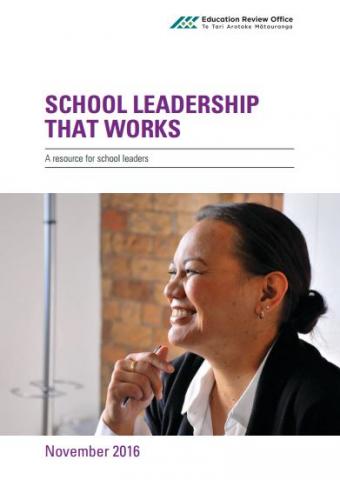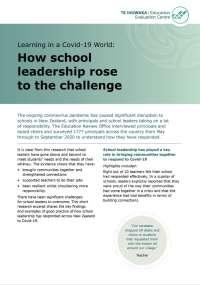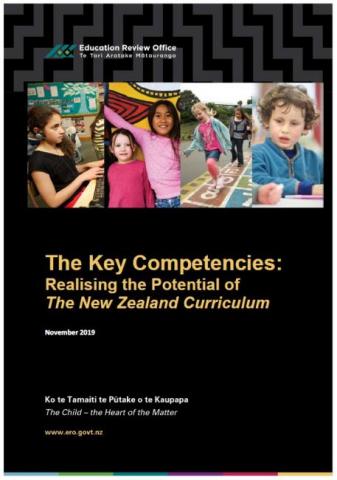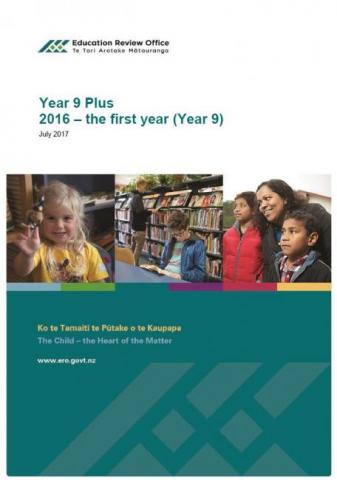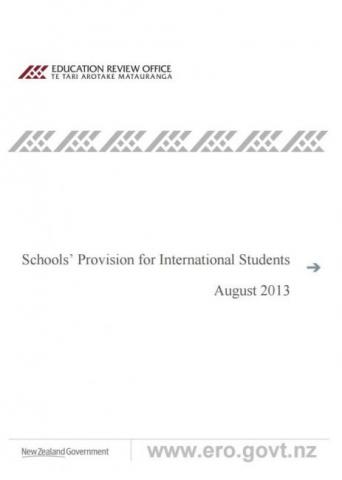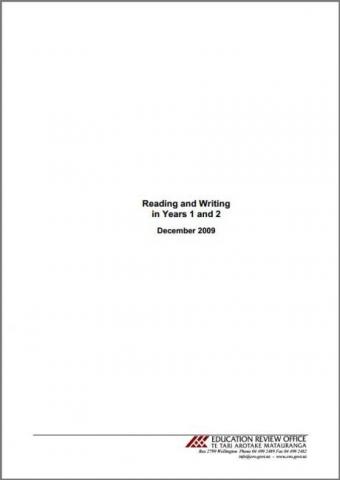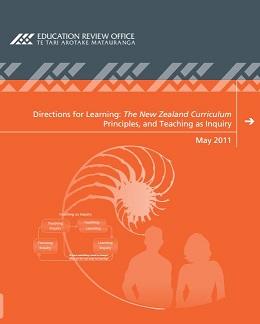Leadership: building effective teams
Published: 04 Sep 2017
A principal describes the need to establish the ‘fertile ground for innovation’ by being explicit about the need to be ‘comfortable being uncomfortable’ in order that together they can question, inquire and critique to make things better the learners.
- Audience:
- Education
- Parents
- Schools
- Content type:
- Research
- Topics:
- Improvement
- Leadership
- Evaluation indicators
- Equitable outcomes
- Video
- Improvement in Action Te Ahu Whakamua

